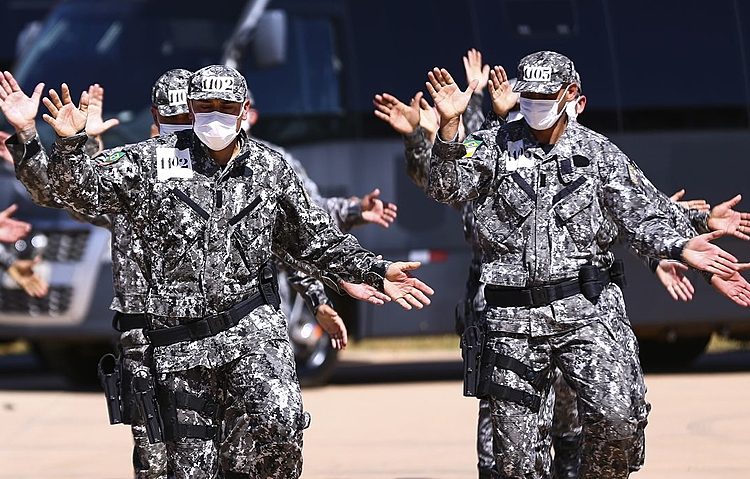The few men from the National Force assigned by the federal government to protect the lives of Funai agents in the Javari Valley Indigenous Land have not yet managed to safeguard the most vulnerable workers. The reason is the lack of vessels and proper weaponry.
Security officers have neither high-caliber guns nor vessels to move staff to protection bases in a region where rivers are the main means of transportation. The situation was reported to Brasil de Fato by people who asked for anonymity.
The vessel should be armored due to the firepower of drug dealers operating in that area. The local Funai base has non-armored, low-powered oil-engined vessels. Not very agile, these boats are not suitable for chasing clandestine vessels, catching criminals in the act, and arresting them.
Servants say that the total number of National Force officers assigned to the region is eight men. This is insufficient since there are five Funai bases distributed in remote areas. The Funai local administration and the National Force estimate that at least 20 agents are needed to meet the demand.
On July 11, members of Funai and National Force assigned to the town of Atalaia do Norte, Amazonas state, requested the deployment of more officers and the dispatch of more guns and vessels. So far, the request has not been granted.
These unprotected Funai agents, often Indigenous people themselves, are on the verge of becoming the next targets. Brasil de Fato found out that agents working in protection bases were instructed to weaken inspections to avoid confrontations.
Patrols in sensitive areas have been suspended
The agents assigned to Javari Valley after the double homicide of Indigenous affairs expert Bruno Pereira and British journalist Dom Philips can only patrol Funai’s headquarter in the town of Atalaia do Norte. Their displacement to the most critical locations of the Javari Valley Indigenous Land was suspended due to a lack of staff and equipment.
Of the five Funai Ethnoenvironmental Protection Bases (also known as BAPEs, in Portuguese) in the Javari Valley Indigenous Land, the only ones with the permanent presence of National Force officers are those located in the Ituí and Itaquaí rivers, where Pereira and Phillips were murdered.
In Ituí/Itaquaí BAPE, however, current agents have not yet arrived because of the deaths of Bruno and Dom. The two National Force officers deployed to the area in order to beef up patrols have been there since 2019 in response to a series of shootings against the facility.
BAPEs are more vulnerable facilities in terms of violence. Boats carrying tons of meat and fish that were illegally extracted from Javari Valley Indigenous Land regularly pass through the bases, often escorted by heavily armed men who violently react against inspections.
Civil servants and Indigenous people are exposed to violence
Most of BAPEs servants are temporary workers or come from Indigenous peoples who live in the region. They do not have professional training to work under death threat conditions, nor are they authorized to carry weapons.
In the Curuçá River BAPE, there was an increase in invasions since the deaths of Bruno and Dom. Servants reported to the National Force that the region has been witnessing a rise in the transit of clandestine vessels occupied by heavily armed people.
Another unprotected Funai base is located in the Jandiatuba River. Last week, servants in the area were intimidated by two armed illegal miners while working. Nobody was hurt.
The Union of Indigenous Peoples Organizations of the Javari Valley (Univaja, in Portuguese) says that the main function of the Jandiatuba base is to ensure the physical and territorial integrity of isolated Indigenous groups that live around the Jandiatuba and Jutaí rivers.
“We, the Union of Indigenous Peoples Organizations of the Javari Valley, are seeing a buck-passing between agencies: one agency puts the responsibility in the hands of another agency. Meanwhile, there is no serious planning to tackle crime in the Javari Valley,” Univaja stated.
Brasil de Fato asked the Ministry of Justice what is the forecast for bolstering equipment. We also asked Funai what measures they are taking to improve the infrastructure of their local unit in Javari Valley. In case of a response, the story will be updated.




